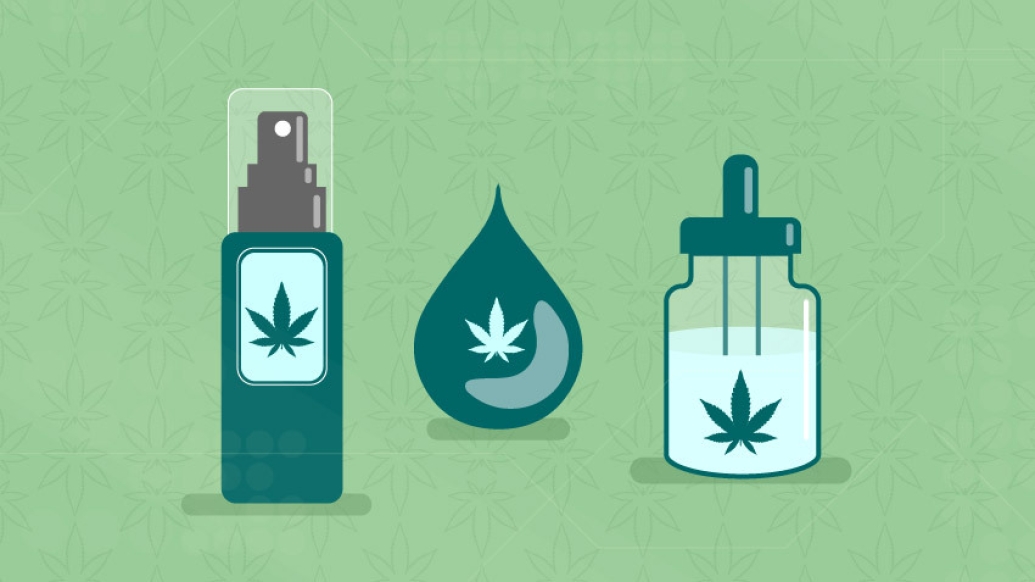People looking for a safer pain reliever are turning to cannabis-derived CBD. Michigan Medicine experts weigh in on what’s currently known about the trendy supplement.
12:41 PM
Author |

Want to learn more on this topic? Listen to this podcast from the Rogel Cancer Center on Medical Marijuana for Cancer Patients.
CBD, short for cannabidiol, is undergoing a surge in popularity as the hot new supplement, with a promise to treat a variety of conditions including pain, anxiety, and insomnia, just to name a few. It's also available in all manner of forms, from lotions and oils to CBD-infused food and drink. But does it work?
CBD is one of the compounds in the cannabis plant, better known as marijuana. Unlike the famous cannabinoid tetrahydrocannabinol (THC), CBD doesn't cause the psychological effects typical of being "high". Both CBD and THC act on the body's natural endocannabinoid system, which plays a role in many processes including appetite, pain and memory.
The scientific evidence around CBD use is thin, a fact that is mainly due to politics. "Cannabis has been a Schedule 1 drug for a long time, which has limited the type of research needed to figure out how best to use it therapeutically," says Kevin Boehnke, Ph.D., research investigator in the department of anesthesiology and the Michigan Medicine Chronic Pain and Fatigue Research Center. Under the U.S. Federal Controlled Substances Act, Schedule 1 drugs are defined as having no currently accepted medical use and a high potential for abuse.
MORE FROM MICHIGAN: Sign up for our weekly newsletter
Yet marijuana has been used as a medicinal plant for thousands of years, he notes. In fact, one of the first recorded uses of cannabis was for rheumatism, also known as arthritis. Cannabis products were widely used as medicines in the 19th and early 20th centuries, and were listed in the U.S. Pharmacopoeia before the onset of Federal restriction in 1937 under the Marijuana Tax Act.
Much of the research literature around CBD in particular supports its use as a treatment for childhood epilepsy. Indeed, in 2018 the FDA approved the CBD-based drug Epidiolex as a drug for childhood epileptic conditions. In a substantial policy shift, Epidiolex was designated as Schedule V, which is the least restrictive drug schedule and indicates little potential for abuse.
SEE ALSO: What Drives Patients to Use Medical Marijuana: Mostly Chronic Pain
While there aren't any published clinical trials on CBD in pain, Boehnke notes that ongoing preclinical studies in animals have demonstrated that CBD reduces pain and inflammation, and studies of CBD in humans show that it is well-tolerated and has few negative side effects. "There are also observational studies that ask why people use CBD and if it's effective, and results tend to be quite positive. People report using CBD for anxiety, pain, sleep — all things that go hand-in-hand with chronic pain," he says. The passage of the 2018 Farm Bill removed hemp-derived CBD (
So many people are turning to CBD as an alternative pain reliever, especially in light of the opioid crisis, that in a commentary published in Annals of Internal Medicine, Boehnke and Daniel Clauw, M.D., director of the Chronic Pain and Fatigue Research Center, provided advice for clinicians on how to counsel their patients about CBD and cannabis use.
LISTEN UP: Add the new Michigan Medicine News Break to your Alexa-enabled device, or subscribe to our daily updates on iTunes, Google Play and Stitcher.
They also provided guidance for the Arthritis Foundation, who recently surveyed 2,600 people with arthritis and found that 29% currently use CBD to treat arthritis symptoms.
Boehnke and Clauw recommend that people with chronic pain talk to their doctor about adding CBD to their treatment plan, and continue to use their prescribed medication. They offer the following advice for people wanting to try CBD:
-
Don't smoke or vape. Bottom line is smoking anything harms the lungs. Vaping has been associated with a recent epidemic of lung disease, according to the Centers for Disease Control & Prevention.
-
Purchase from reputable sources. Like vitamins and other supplements, CBD products aren't regulated or FDA approved to treat disease, so buyer beware. Look for products that have been tested by an independent third party lab "so you don't end up with a product that has THC in it or a product contaminated with heavy metals or pesticides," says Boehnke.
-
Route of administration matters. CBD is best taken in pill or capsule form for slow extended release or as an oral tincture (infused oil that contains CBD) for faster effect onset.
-
Start low, go slow. Take a small amount and slowly increase your dosage until you start to get symptom relief over a matter of weeks. Track your symptoms to get a sense of whether or not CBD is a helpful part of your treatment plan.
-
Check your state laws. While medical marijuana is legal in many states, it's still illegal at the Federal level, putting CBD in a legal gray zone in many areas.

Explore a variety of health care news & stories by visiting the Health Lab home page for more articles.

Department of Communication at Michigan Medicine
Want top health & research news weekly? Sign up for Health Lab’s newsletters today!





